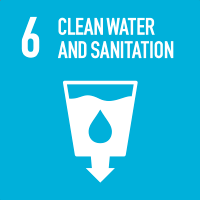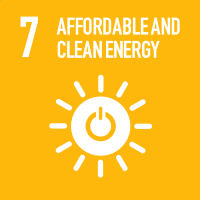Studying at the University of Verona
Here you can find information on the organisational aspects of the Programme, lecture timetables, learning activities and useful contact details for your time at the University, from enrolment to graduation.
Study Plan
This information is intended exclusively for students already enrolled in this course.If you are a new student interested in enrolling, you can find information about the course of study on the course page:
Laurea in Biotecnologie - Enrollment from 2025/2026The Study Plan includes all modules, teaching and learning activities that each student will need to undertake during their time at the University.
Please select your Study Plan based on your enrollment year.
1° Year
| Modules | Credits | TAF | SSD |
|---|
2° Year activated in the A.Y. 2022/2023
| Modules | Credits | TAF | SSD |
|---|
3° Year activated in the A.Y. 2023/2024
| Modules | Credits | TAF | SSD |
|---|
1 module among the following| Modules | Credits | TAF | SSD |
|---|
| Modules | Credits | TAF | SSD |
|---|
| Modules | Credits | TAF | SSD |
|---|
1 module among the followingLegend | Type of training activity (TTA)
TAF (Type of Educational Activity) All courses and activities are classified into different types of educational activities, indicated by a letter.
Bio-reactors (2023/2024)
Teaching code
4S008192
Credits
6
Language
Italian
Scientific Disciplinary Sector (SSD)
ING-IND/25 - CHEMICAL PLANTS
Courses Single
Authorized with reserve
The teaching is organized as follows:
Teoria
Laboratorio
Learning objectives
The course g aims at transferring to students the basic knowledge about transport phenomena (matter, energy and momentum transfer) as well as the methodology for mass and energy balances around bioreactors operating both in batch and continuous mode for industrial production. These aspects are essential basic information for future courses on the same topic at master level. The course is formed of two modules: one frontal teaching activity (5 CFU) and the lab activity (1 CFU). The lab activity is orientated to the transfer of practical knowledge for the solution of quantitative problems.
Prerequisites and basic notions
Knowledge learned in general and inorganic chemistry, organic chemistry and physics courses.
Program
Mass Balances in environmental systems, calculation of yields and enzymatic kinetic efficiencies, Michaelis Menten equation, Inhibitions, Microbial growth and Monod equation, Fundamentals of Bioreactors for environmental applications and biorefineries with numerical exercises on real case studies. Description and analysis of processes and plants for the removal, through biotechnological applications, of pollutants in various environmental compartments, with particular attention to water treatment (biological oxidation, nitrification, denitrification, dephosphating, etc.), of waste with or without energy recovery (composting, anaerobic digestion, aerobic digestion, etc.), graphic representation of an environmental chemical process (block diagrams and P & Id), use of simulators (software) for the modeling and verification of environmental bioreactors. Laboratory exercises: Monitoring of a biotechnological activated sludge plant; Respirometry on activated sludge for the evaluation of functional parameters; Experimental matter balance for anaerobic, anoxic / aerobic bioreactors; Transport of gas / liquid matter in environmental biological systems
Bibliography
Didactic methods
The course includes face-to-face lessons
Learning assessment procedures
Candidates must take an examination consisting of a written test followed by an oral test. The written test consists of 2 numerical exercises and a question related to the theoretical part covered in class. The oral test will have as its topic of discussion the report prepared by the candidate related to the practical laboratory experiences.
Evaluation criteria
Evaluation will take into account the degree of completion of numerical exercises, level of depth and degree of difficulty.
Criteria for the composition of the final grade
The written test will be evaluated with a maximum score of 25/30. The oral test will be evaluated with a maximum score of 5/30. The final outcome will be the sum of the scores obtained from the written test and oral test.
Exam language
Italiano



